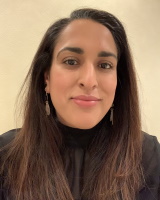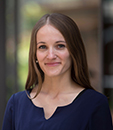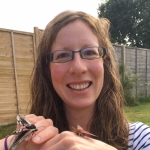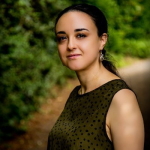2016 Data Impact Fellows

Bram Vanhoutte
What was Bram working on when he became a Fellow?
Research Fellow in Sociology at the Cathie Marsh Institute for Social Research (CMIST), The University of Manchester.
Bram’s research used the English Longitudinal Study of Ageing as well as the US Health and Retirement Study and the Australian Life Histories and Health Study, and focussed on wellbeing in later life as a marker for successful ageing in the research project ‘frailty and inequality in later life’ within the Manchester Institute for collaborative Research on Ageing (MICRA).
What’s he up to now?
Bram is currently senior lecturer (chargé de cours) at the School of Public Health of the Université Libre de Bruxelles, and has returned to his native Belgium after 9 years in the UK as a researcher and lecturer at the Universities of Manchester and Liverpool.
He teaches quantitative research methods – from basic to advanced levels (both in French and English) at Master level, and leads a number of research projects that focus on inequalities in ageing. Next to being involved as a co-PI in a large mixed methods project on ethnicity and frailty in the UK, funded by the ESRC’s diversity in ageing call, he has just started an ambitious project that wants to redefine how we think about ageing by investigating the social and life course determinants of resilience to health changes in later life.
Follow him
Twitter: @bvhoutte
Claudia Zucca
What was Claudia working on when she became a fellow?
Marie Curie Early Stage Researcher working on the VOTEADVICE project, in collaboration with the University of Exeter, Kieskompas Amsterdam and Koç University Istanbul.
Claudia used data from the British Social Attitudes Survey, the European Social Survey, the British Election Study and the European Values Study, and was focussing on the impact of new technologies on political behaviour using advanced quantitative methods. Her research concerned the use of quantitative methodologies to explore electoral behaviour and the use of technologies for generating information about electoral decision making and the process of political learning.
What’s she up to now?
Claudia Zucca is an Assistant Professor in organizational networks at the Jheronimus Academy of Data Science, Tilburg University where she is part of a a dynamic approach to teaching data-driven entrepreneurship. She previously worked as a post-doctoral researcher at the University of Glasgow. Her research focuses on data analytics, especially network analysis, applied to the social science domain, such as forming political opinions, introducing innovation in organizations, and health policy implementation.
Follow her
Twitter: @_CZucca

Dharmi Kapadia
What was Dharmi working on when she became a fellow?
Research Associate at the ESRC Centre on Dynamics of Ethnicity, The University of Manchester.
Dharmi has a PhD in Social Statistics and 10 years’ experience of research that has produced knowledge to improve the lives of people suffering from racist discrimination and mental and physical illnesses. Dharmi was working on a project to look at how racism influences mental illness in ethnic minority people using data from Understanding Society.
What’s she up to now?
Dharmi is a senior lecturer in sociology at the University of Manchester and a member of the Centre on Dynamics of Ethnicity (CoDE), who developed the Evidence for Equality National Survey (EVENS), which will be accessible in 2023 from the UK Data Service. Dharmi wrote about EVENS last year on the Data Impact blog. Dharmi lead a review of ethnic inequalities in healthcare, commissioned by the NHS Race & Health Observatory.
Follow her

Marii Paskov
What was Marii working on when she became a Fellow fellow?
Sociologist and Research Officer at the Institute of New Economic Thinking at the University of Oxford.
Marii was engaged in the Employment, Equity and Growth Programme focusing on inequality and living standards and working in the Oxford Martin Programme on Inequality and Prosperity. Using the European Social Survey, the Wealth and Assets Survey, and the British Household Panel Survey Marii’s research focussed on intergenerational social mobility.
What’s she up to now?
Marii is a Lecturer in Social Policy at the School for Policy Studies at the University of Bristol and an Associate Fellow at Nuffield College and the Institute for New Economic Thinking at the University of Oxford. She is also affiliated to the School of Governance, Law and Society at Tallinn University and serve as an Associate Editor of European Societies, the flagship journal of the European Sociological Association.
Follow her
Twitter: @MariiPaskov

Rachel Oldroyd
What was Rachel working on when she became a fellow?
Quantitative human geographer based at the Consumer Data Research Centre (CDRC) within the Leeds Institute for Data Analytics (LIDA) at the University of Leeds.
Rachel started a part-time ESRC White Rose Studentship in October 2015 and her PhD centred on spatial data analytics for food safety, with particular focus on foodborne illness. Her research investigated the incidence of foodborne illness in the UK through innovatively combining data sources such as the UK census, online restaurant reviews, socio-economic data and food establishment hygiene scores to identify populations at risk; construct spatial-temporal models of food safety at varying geographies; and explore the utility of these models as a means to target scarce resources.
What’s she up to now?
Rachel is a Lecturer in Geographic Data Science based within the Centre for Spatial Analysis and Policy in the School of Geography. Rachel completed a PhD in Big Data and Food Safety in 2021. Rachel is passionate about addressing underrepresentation within Higher Education. She is involved in the University’s student access and success networks, acts as an Access to Leeds tutor, and has delivered over 30 outreach sessions to date.
Follow her
Twitter: @r_oldroyd

Sarah Knight
What was Sarah working on when she became a Fellow?
ESRC-funded PhD student in the Environment Department of the University of York.
Sarah was interested in the areas of human well-being, nature connectedness, environmental quality and ecosystem services. Sarah was researching the impact of the natural environment on subjective well-being. As part of her PhD Sarah was using Understanding Society and the British Household Panel Survey to explore the determinants of self-reported well-being on adults in the UK.
What’s she up to now?
Sarah completed her PhD in 2020 and is currently an ESRC Postdoctoral Fellow, investigating the links between socioeconomic and environmental inequalities and nature connectedness and leads the ESRC-funded Green & Gender-just Cities project.
Follow her
Twitter: @sarah_gis

William Shankley
What was Will working on when he became a Fellow?
Sociology PhD student at the Cathie Marsh Institute of Social Research, The University of Manchester.
Will was using census microdata and census flow data and focussing on internal migration patterns of Polish people in England and Wales and the factors that shape their migration decision-making. William’s research combined 2011 UK Census data for England and Wales with interview data collected from forty Polish people living across Greater Manchester.
What’s he up to now?
Will has recently changed jobs and is working as an assistant professor in Sociology at the University of Nottingham. He is teaching and is working on a project that examines how Covid-19 impacted the lives of young asylum seekers (16-25).

